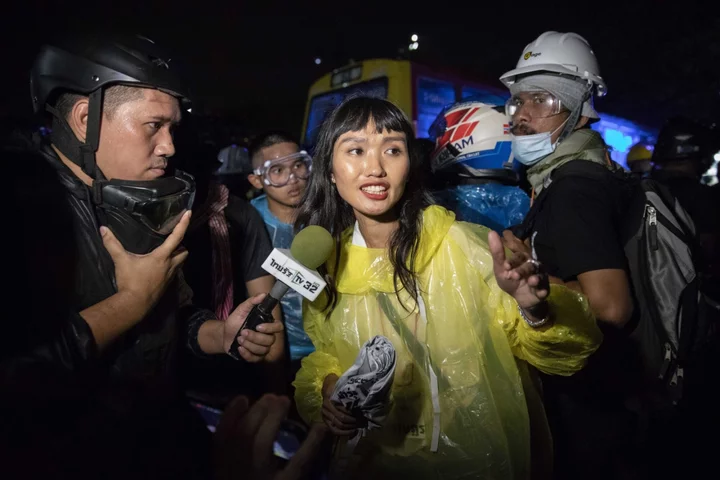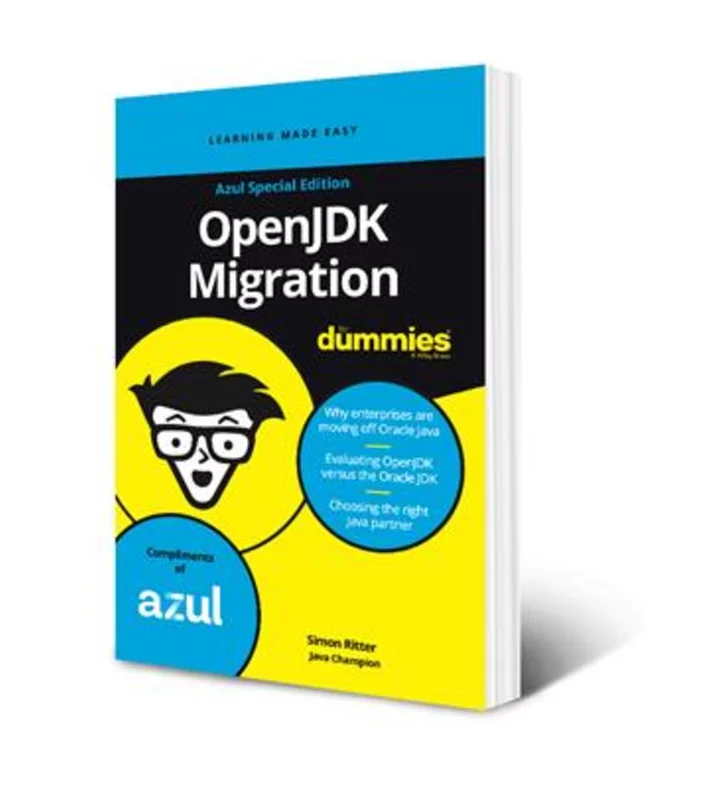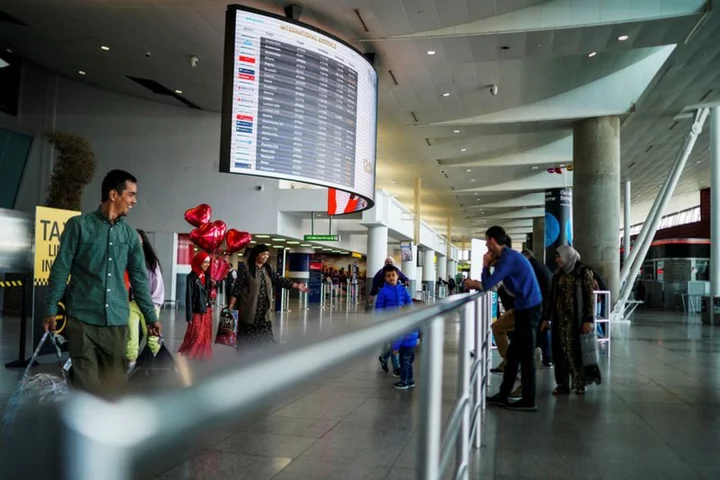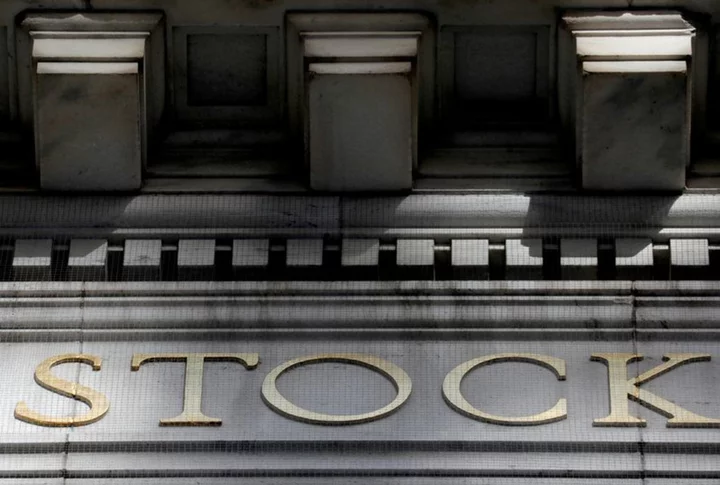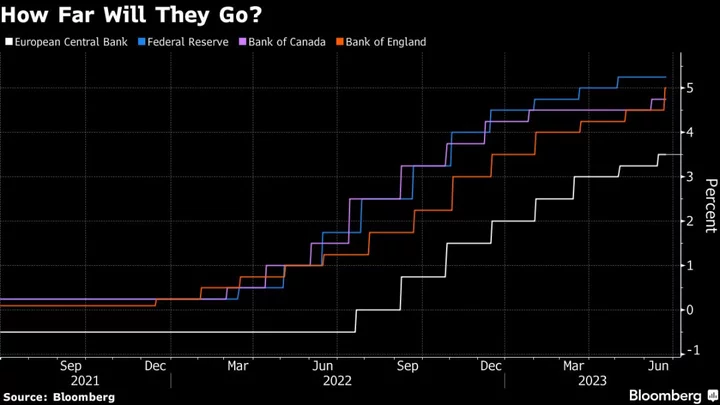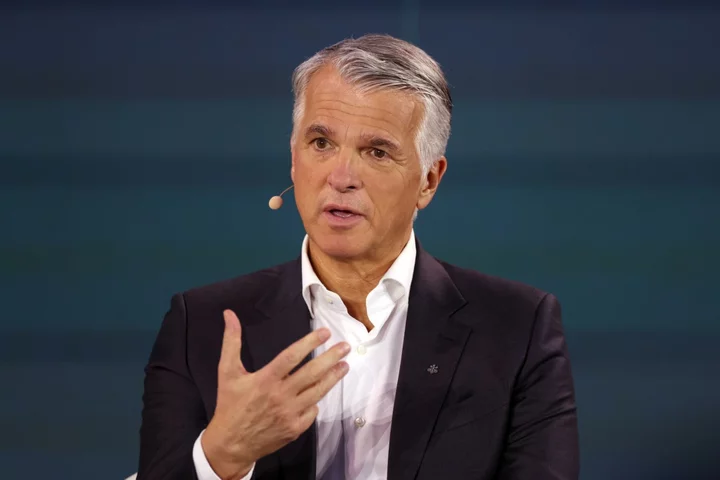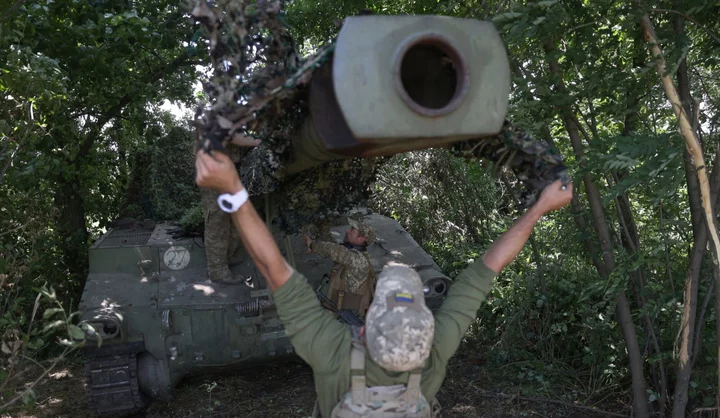As the sun set over Bangkok in late March, a Thai graffiti artist walked up to the pearl-white walls of the 18th-century Grand Palace and spray-painted an anarchy symbol along with the numbers “112” crossed out, like a No Smoking sign.
Within minutes, police tackled Suttawee Soikham, 25, and pinned him to the ground. Although he was only hit with charges related to public vandalism that night, he was arrested days later over an old Facebook post for breaching Article 112, a law known as “lese majeste” that can put offenders behind bars for as many as 15 years if they’re convicted of insulting the king or several other top royals — the very statute he was protesting.
Then something happened that would’ve been unthinkable just a few years ago: Footage of the scene went viral on social media, prompting copycat graffiti to pop up at bus stops, taxi stands and Skytrain stations across the capital.
The incident is the latest example of a broader transformation taking place in Thailand since the last national election in 2019, as a new generation publicly challenges a conservative political establishment revolving around the monarchy, the country’s most powerful institution helmed by 70-year-old King Maha Vajiralongkorn. Any criticism that in decades past would typically have been whispered in secret is now being openly talked about ahead of the May 14 vote.
The wave of royal skepticism has found a home in the political party Move Forward, the only mainstream group calling for changes to Article 112 to allow greater freedom to discuss the monarchy. The party is surging in the polls, second only behind a pro-democracy group backed by Thaksin Shinawatra, an exiled former prime minister whose various political parties have won the most seats in every election since 2001 — only to see generals and judges aligned with the monarchy boot them out of office or disband them entirely.
“The sentiment of the era has changed,” Pita Limjaroenrat, Move Forward’s 42-year-old leader who has surged to the top of recent surveys among individual candidates for prime minister, said in an interview. Those that stand to lose out, he added, are “the top 1%, which is the elite, the military, the money.”
The phenomenon represents one of the biggest challenges in years to the military and royal establishment, which have aligned to prevent democracy from taking hold. The perpetual sparring – the past two decades have seen two coups, multiple constitutions and several bouts of violent street protests, including unprecedented demonstrations in 2020 targeting the monarchy – has eroded the Southeast Asian nation’s economic competitiveness just as multinationals look to shift production out of China. Thailand’s stock market is among the worst performers in Asia this year.
READ: How Military Has a Thumb on Scales in Thai Election: QuickTake
The election outcome is likely to be messy. Even though polls indicate a landslide win for pro-democracy parties against groups backed by the army, a military-appointed Senate ensures the generals have a say in who becomes prime minister. If the Thaksin-backed Pheu Thai party manages to form a coalition government, it then faces the risk of another coup or disbandment if it tries to fundamentally change the political system to erode the power of the military or monarchy.
“The eventual showdown will center on how Thailand’s traditional centers of power react and respond to these demands for reform,” said Thitinan Pongsudhirak, a professor at Chulalongkorn University in Bangkok. “Anti-monarchy sentiments are growing, and the prime minister has to be able to keep a lid on things.”
King Vajiralongkorn, who attended the coronation of King Charles III in London last week, has appeared to spend more time in Thailand since the 2020 protests, a contrast to previous years where he spent long stints in Germany. In recent months, the monarch has presided over university graduation ceremonies, performed Buddhist ceremonies and even cooked various Thai dishes for medical staff.
Read more on Thai politics
-
Thaksin’s 36-Year-Old Daughter Looks to Take Down Thai Generals
-
Harvard Grad Pitches to Break Old Guard’s Grip on Thai Power
-
Asia’s Worst-Performing Stock Market Set for Election Boost
-
Crowded Thai Election Field Boils Down to a Two-Way Contest
A representative of the royal palace said it doesn’t comment on social issues and trends. A government spokesman said the administration isn’t commenting on political issues during an election campaign, and referred questions to Prime Minister Prayuth Chan-Ocha’s United Thai Nation party, whose spokesperson didn’t answer repeated calls for comment.
Tensions have been brewing since 2016, when King Vajiralongkorn took the throne following the death of his father, King Bhumibol Adulyadej, who reigned for 70 years before passing away at the age of 88. The new monarch quickly asserted his authority, taking direct command of some army units and acquiring personal ownership of Crown Property Bureau assets valued at tens of billions of dollars, including a controlling stake in the nation’s biggest bank by market value.
King Vajiralongkorn also played a role in the 2019 election, revoking royal decorations given to Thaksin about a week after the inconclusive vote in what was seen as a signal to other parties to avoid working with him to form a coalition. That set the stage for a pro-military party to form a government helmed by Prayuth, a former army chief who led a coup in 2014 and has ruled ever since.
That election also saw the rise of Future Forward to become the second-largest opposition party, attracting younger voters fighting for democracy and questioning the monarchy. In October 2019, 70 lawmakers from the party voted against an emergency decree to transfer some army units to King Vajiralongkorn’s command, stunning a nation that treats top royals as semi-divine. A court disbanded the party a few months later, and Move Forward emerged as a successor.
Tensions boiled over in 2020, when a student-led protest movement broke longstanding Thai taboos by openly calling for more checks and balances on the monarchy. Although the near-daily protests eventually petered out, many of those who participated are standing for the election with Move Forward.
“The movement has started cultural and structural changes, and more importantly it has chipped away at the traditional symbols of power,” said Piyarat Chongthep, 32, who was on the front lines of the 2020 protests and is now a candidate with the party.
“We don’t need to pull out a crossbow or a knife to hurt our enemies,” he said. “Instead, we have to be what they’re most afraid of: an elected representative of the people.”
Piyarat faces almost two dozen charges, including three counts of lese majeste. He’s among nearly 250 people facing lese majeste charges since the demonstrations started in July 2020, according to statistics compiled by Thai Lawyers for Human Rights. Under Thai election rules, Piyarat can run for office but he will be disqualified immediately if he’s both convicted of a crime and thrown into jail.
Chonthicha Jangrew, a 30-year-old former activist who is also a Move Forward candidate, said she was inspired to run for parliament after watching lawmakers refuse to discuss monarchy reforms in the wake of the protests, which saw young people seeking change hit with tear gas, rubber bullets and police batons.
“It made me realize that you can’t just change the country from the streets,” she said.
All the other political parties are avoiding discussions of the monarchy on the campaign trail, instead competing on a similar slate of populist proposals such as wage increases and suspension of debt repayments. The issue may even prompt the frontrunner Pheu Thai, now led by Thaksin’s daughter, Paetongtarn Shinawatra, to avoid linking up with Move Forward after the election due to fear of being disbanded.
Conservative royalist groups are gearing up for a fight. Prayuth’s military-aligned United Thai Nation party warned this week that a win for opposition parties will drag Thailand “backward into a black hole of conflict and mutiny.”
“The monarchy is under attack,” said Warong Dechgitvigrom, who started a political party called Thai Pakdee, which advocates making the lese majeste law more stringent.
“The institution is a spiritual center of the country, but a group of people blames it as a problem,” he said in an interview. “That’s not true. This group is seeking to change Thailand to be a republic.”
Still, the shifting views on the monarchy are also evident more broadly across Thai society.
Many movie-goers no longer stand up when the royal anthem video plays before films, something that in years past has led to brawls and lawsuits. Street graffiti, stickers, and other public displays of frustration are popping up around Bangkok and elsewhere.
Students are also becoming more politically active, pushing back against conservative rules regulating school uniforms and hair styles. One group called Bad Students has been giving out a book to help students “survive” what it calls authoritarianism in schools, where young people are taught from an early age to respect the monarchy.
Although protesters are no longer on the streets, the impact of the demonstrations is still resonating throughout society and may take decades to change the system, according to Piyarat, the Move Forward candidate.
“The impact of the protests can’t be measured in statistics, but only in time,” he said. “I might not live to see it then, but I believe that day will come.”
(Updates with latest surveys in sixth paragraph)

